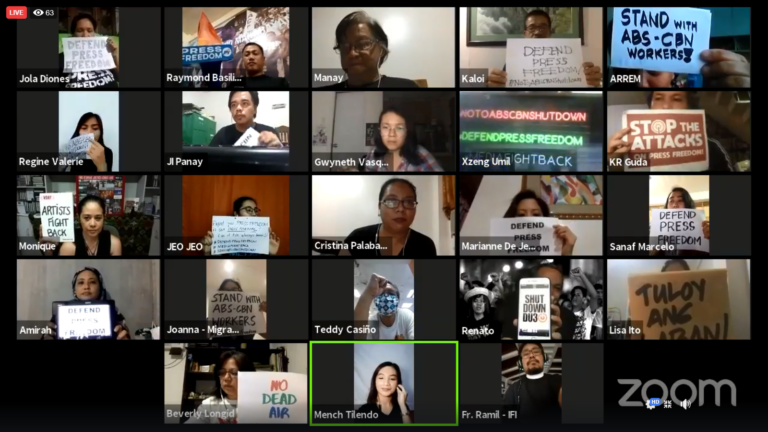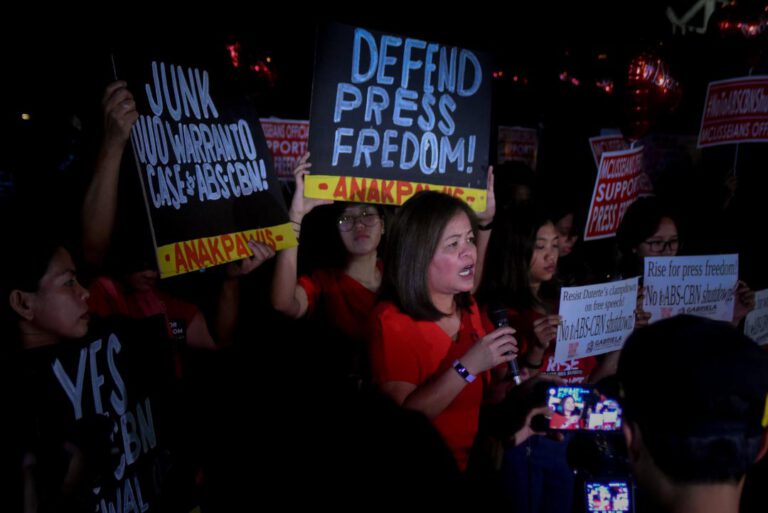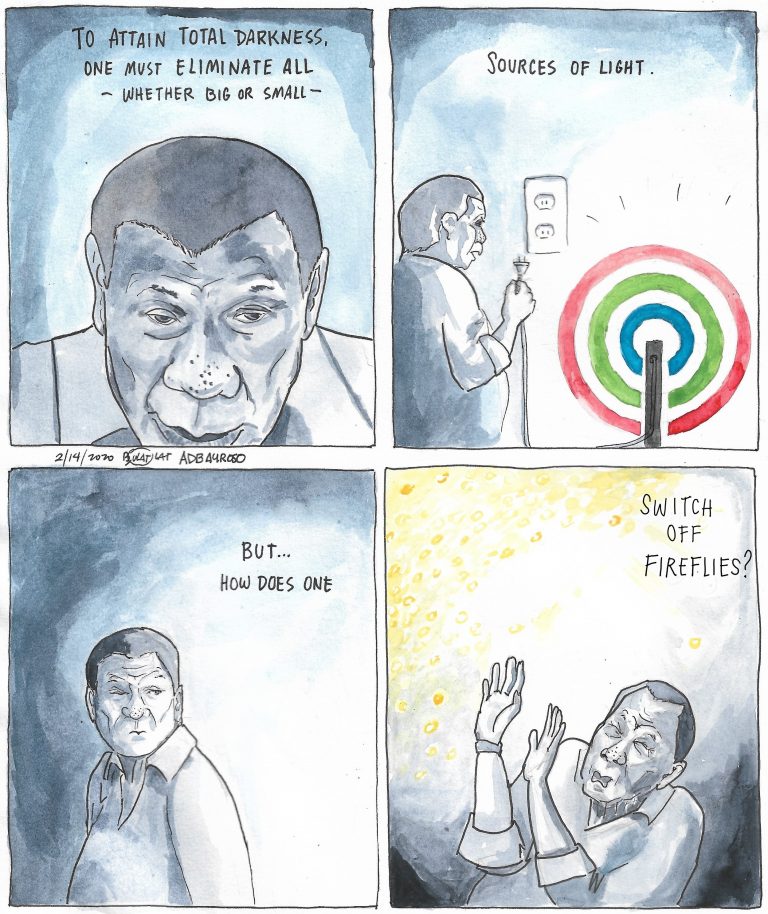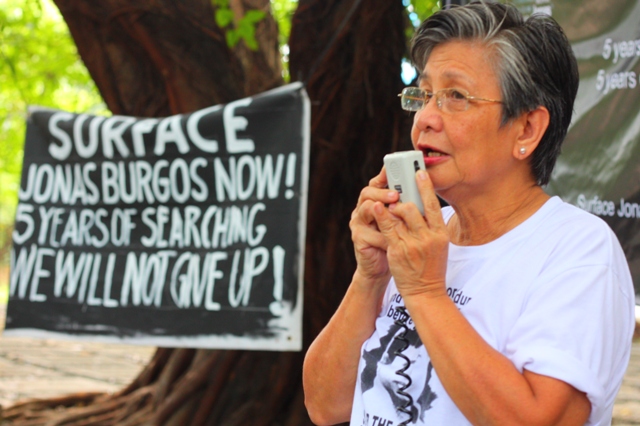From the outset of the Duterte government’s
military lockdown as its response to the spread of the coronavirus, it has
directed the continuous flow of food commodities, along with medicines and
other essentials. Food is inarguably essential to people’s survival during a
pandemic and in its socioeconomic aftermath.
Government’s response however has fallen short
in ensuring food production and supply. In fact, the military and authorities
have controlled even the movements of the direct producers, both in tending
their farms and selling their produce to the markets. Even activist volunteers
who endeavored to bridge the farmers’ produce to urban consumers and to deliver
relief goods to the farming families were detained and accused of violating
quarantine rules and inciting to sedition.
The thing is, government has erased “food
self-sufficiency” from its agricultural planning principles, now totally
unheard of in the Philippine Development Plan 2017-2022. It has instead focused
on “economic opportunities” anchored on “market orientation”. The country’s
lack of food self-sufficiency has made government’s coping with crises such as
COVID-19 utterly chaotic. It is the
economy’s sinkhole that will make us fall deeper into a COVID-aggravated
economic crisis.
Yet, eight weeks into the military lockdown,
while it continues to wrestle with its insufficient health response, the
Duterte government is talking of a “new normal” in agriculture. A closer look
at the plan, however, reveals it to be a bunch of old habits that have hampered
Philippine agriculture from achieving even the most basic goal of food
security, much more self-sufficiency.
Pre-COVID crisis
Only eight weeks ago, the country’s “normal”
agriculture was having its worst crisis in decades. The sector lost 1.4 million
jobs in 2017-2019, the highest number in a three-year period in the last two
decades. Its average annual growth rate of 2.1% in the same period is also
lower than the 3.5% average in the last 70 years. The sector has also reached
its smallest share in history at just 7.8% of the country’s gross domestic
product.
In the first quarter of 2020, agriculture
posted a 1.2% decline in output, finally collapsing after a momentary recovery
from a decline in 2016 and a three-year slowdown thereafter.
Neoliberal policies that government has
recklessly implemented are the culprit in agriculture’s near demise. Starting
off with the evasion of free land distribution to tillers and rampant land
conversions to favor finance capital, government has oriented agriculture
towards commercialization, high value cash crops, inorganic chemicals
dependency, paid-for irrigation, imported machinery, and trade liberalization.
Agriculture is not a government priority, which is putting it mildly when the
figures clearly manifest state neglect. The 3.5% average share of agriculture
and agrarian reform in the 2017-2020 budgets is the lowest in two decades. In
2018, the Duterte administration delivered the coup de grace with the liberalization of rice imports.
Landowners and merchants have exploited this
“normal” – that is the classic story why our food frontliners are the most
destitute and hungry in Philippine society. And like adding insult to injury, the
government points to farmers’ lack of capacity and technology (and interest to
carry on) as the reason why food self-sufficiency is not feasible.
Government gross neglect
Then, COVID-19 happened. Government agencies
could not even provide a full picture of our food buffer stocks. The Philippine
Statistics Authority has stopped updating the rice inventory, for instance.
This showed that, as of March 1, our rice stocks were enough for only 65 days,
quite below the 90-day buffer. Vietnam’s announcement that it would implement a
rice export ban added to Filipinos’ anxieties – Vietnam accounts for about 38%
of Philippine rice imports.
A day before the declaration of a lockdown,
euphemized as ‘enhanced community quarantine’ (ECQ), the Department of
Agriculture (DA) made assurances that there was enough food for everyone in
Metro Manila. The stocks of rice, vegetables and root crops, poultry and meat
products, fish, and eggs were sufficient. It took time before some local
government units started distributing relief foods, and even then mostly
unhealthy canned sardines.
Farming has been disrupted. IBON estimates about
2.5 million farmers, farm workers and fisherfolk economically dislocated by the
ECQ. The ECQ guidelines specifically allow establishments engaged in food
production and trade but are painfully quiet about the farmers. Farmers’
organizations have said it succinctly – there is no work
from home for them. They are subsistence farmers who will go hungry if they are
not allowed to farm.
The Duterte government’s COVID response for
agriculture under the Bayanihan to Heal as One Act is to provide Php5,000 cash
assistance each to only 591,246 beneficiaries under the Financial Subsidy to
Rice Farmers (FSRF). But as of 28 April 2020, seven weeks into the lockdown,
the Duterte government has served only 266,284 rice farmers.
Farming families may have been given cash
assistance through the social amelioration program of the Department of Social
Welfare and Development (DSWD), which even then has only served 57% of its
target 18 million beneficiaries as of 1 May 2020.
Granting that the rice farmers have indeed
received subsidies, IBON estimates these to be equivalent to only Php80-119 per
day over 49 days of lockdown, or less than one-fourth of the already low
official poverty line of Php353 per day for a family of five.
Government’s meager and much-delayed response
to the pandemic is pushing the poor and vulnerable farmers and fisherfolk
deeper into poverty and hunger, which gets more and more morally unacceptable
at this point in our crisis.
Neoliberal inertia
The DA is among the first agencies to talk of
a new normal. We should rethink and restructure our policies and practices,
said DA secretary William Dar. But the DA’s emphasis on the continuation of
neoliberalism especially under a global economy that is about to plunge into a
grave depression cannot be missed. The Duterte government cannot fake a new
normal narrative when its transition plan remains neoliberal.
The budget priority for the DA to transition
to its “new normal” remains for cash assistance instead of production support.
This is under the Rice Farmers Financial Assistance (RFFA), which is in line
with the implementation of the Duterte administration’s rice liberalization
law. The RFFA targets to provide Php5,000 to rice farmers who are tilling 0.5-2
hectares. The FSRF is in addition to RFFA and is packaged as the COVID-19
response, which targets rice farmers who are tilling one hectare and below. The
total target beneficiaries of both packages are 1.2 million rice farmers
nationwide, but there are 2.5 million rice farmers in the country who are
definitely dislocated by rice liberalization.
The program priority is a food resiliency
action plan that is aimed at an unhampered flow of food and agri-fishery products.
It is anchored on the aforementioned cash assistance as consumption stimulus
and market links such as the Kadiwa program, market satellites and market on
wheels. In short, it is anchored on trade, again not so much on strengthening
farmers’ production. The plan is also about popularizing urban and backyard
gardening, which is overly focusing on individual consumers to go on survival
mode instead of improving the production and conditions of farming communities
in the real spirit of bayanihan.
The DA has proposed to implement nationwide
the “Ahon Lahat, Pagkaing Sapat (ALPAS) Laban sa Covid-19” or what it dubs as
Plant, Plant, Plant program to “increase the country’s food adequacy level”,
with an approved Php31-billion supplemental budget. But this will be done by
intensifying the use of quality seeds, inputs, modern technologies – which have
been proven from experience to only add to the farmers’ debt burdens. The DA
unfortunately has perennially acted as a marketing agent and endorsed the sale
of seeds, inputs and farm machinery of big agribusiness to Filipino farmers,
while it has shunned the promotion of agroecological practices.
The Duterte government still emphasizes that
in order for agri-fishery to grow and cope with emergencies such as pandemics,
the sector needs to attract more investments and resources and partner with the
private sector. And there we are back on the neoliberal road.
Build the momentum
Surely, food self-sufficiency can be our new
normal. But first in the face of a pandemic, farmers need fast and sufficient
relief assistance, both for their daily needs and health services and as
production subsidy. In the same manner that urban consumers should be relieved
of paying their bills during COVID-19, farmers should have been long ago
condoned of their mounting debts from unpayable land amortizations, loans from
unscrupulous traders, and even from availing of government lending programs.
Then, farmers and fisherfolk should be allowed to go to their farms and on
fishing trips and deliver their produce to the markets.
But in the long-term, food self-sufficiency is about the assertion of an entire range of human rights. The state should recognize the right to food, the right to produce food, the right to till the land, and to have control of the land that farmers have been tilling for generations. Farmers have the right to choose their own production system, so as not to be dictated by the whims of the market and made vulnerable to market vagaries. We can envision an agriculture that is moving away from the profit-oriented concept of value chain that disregards the small producers and their environment, and move towards sustainable farming practices.
In the end, we can build the momentum for food self-sufficiency only from the farmers’ struggle and movement for genuine agrarian reform. And that should be our new normal.







